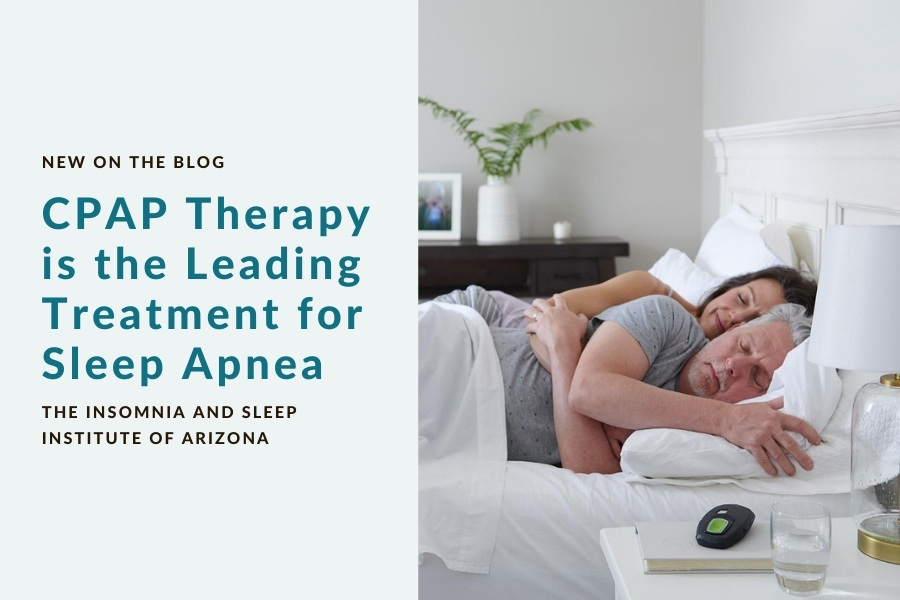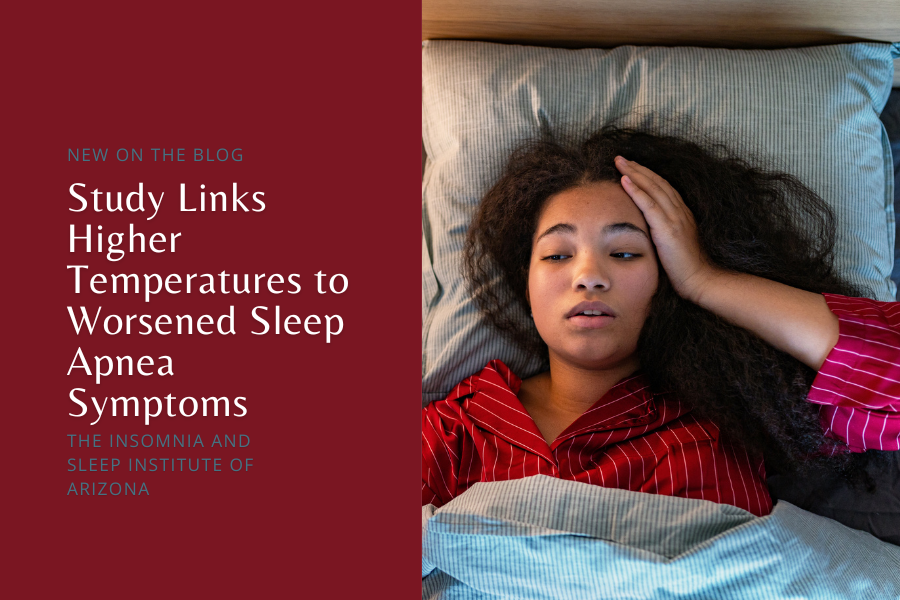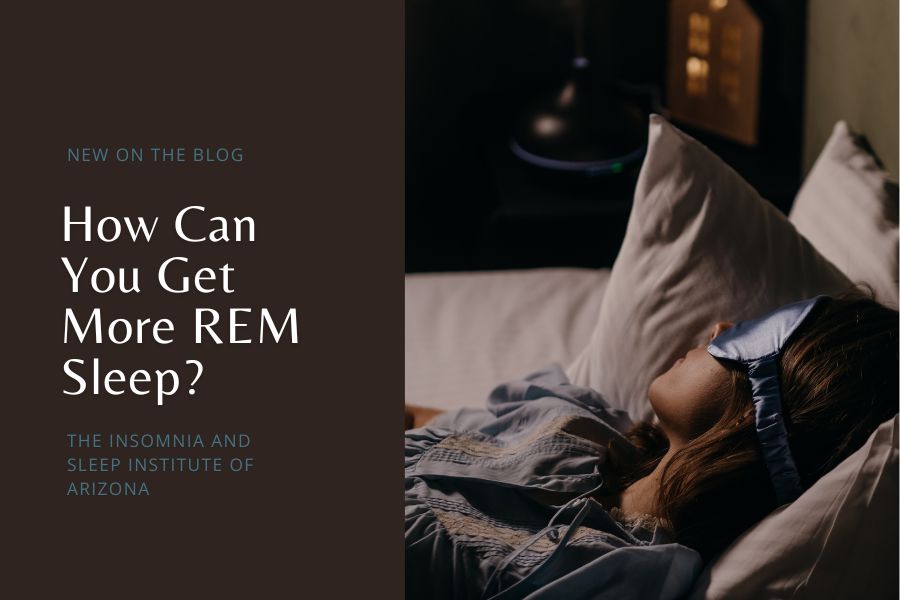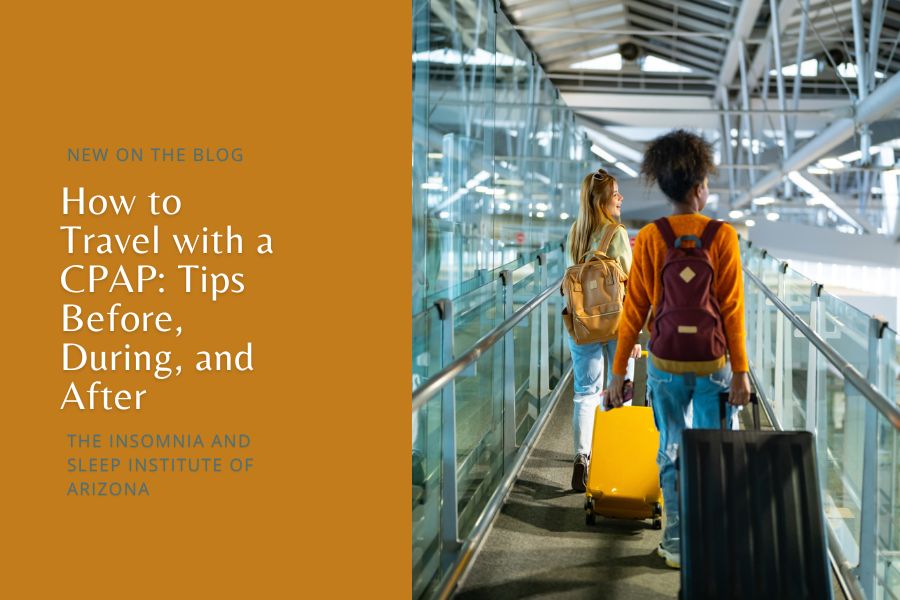About 22 million Americans struggle with moderate to severe sleep apnea, and it is likely that this figure is under-reported. The Insomnia and Sleep Institute of Arizona is staffed by sleep specialists who concentrate in sleep medicine. Only a sleep expert should be the person you trust to diagnose sleep disorders such as sleep apnea, and The Insomnia and Sleep Institute is recognized as the “Face of Sleep Medicine” in Phoenix, setting the standard for sleep medicine.
You may not realize you have sleep apnea. Many people are told by their sleeping partners about their snoring or that it seems like they stop breathing throughout the night. Sometimes people suspect they have a sleep disorder because they wake up throughout the night, have trouble falling asleep, or feel fatigued no matter how much sleep they think they are getting. Sleep apnea is one of the most common sleep disorders, and obstructive sleep apnea (OSA) occurs when breathing is interrupted many times throughout the night due to the airway getting blocked (often by soft tissue). The side effects of OSA can be debilitating, linked to chronic fatigue, heart disease, strokes, and more.
Addressing Sleep Apnea with CPAP Therapy
At The Insomnia and Sleep Institute, we are driven by outcomes and this journey begins with the right diagnosis. Our consultations are always with sleep specialists and treatment is exclusively performed by experts. Since it is estimated that one in 15 adults in the country has OSA, sleep apnea is considered a relatively common condition in the world of sleep disorders. However, about 80 percent of those with OSA are currently not diagnosed. Men are at a higher risk of having sleep apnea than women, but anyone of any age can struggle with it.
Children can have sleep apnea, too, though the prevalence in pediatric patients isn’t as high. About two percent of children have sleep apnea, and in these cases it may be caused by enlarged tonsils. We treat children as young as two for all types of sleep disorders, including sleep apnea. There are many co-morbidities associated to sleep apnea, as well as circumstances that may trigger or exacerbate this problem. For instance, carrying excess weight, smoking, having a narrow airway, and genetics can all be connected to sleep apnea. Age, certain medications, and alcohol consumption have also been linked to sleep apnea. If you have sleep apnea, what is the most likely route of treatment?
CPAP Therapy
CPAP therapy is the standard treatment for sleep apnea. There are numerous types of CPAP machines available with accessories (such as face masks and tubing), which makes it imperative to work with a sleep expert to find the setup that works best for you. Today’s CPAP machines are designed to be relatively lightweight and portable, making them easy to travel with. CPAP therapy helps the majority of sleep apnea patients achieve continuous, unobstructed breathing throughout the night. Those who struggle with using a CPAP machine often do so because the accessories are not fitted correctly, and this can usually be addressed by working with your sleep medicine expert.
However, in some cases, CPAP therapy simply doesn’t work for certain patients. In these cases, an implant may be recommended. Different implants are available, but each works internally by “making” the airways remain clear while asleep. If you are interested in learning more about implants for sleep apnea, know that it is required to have tried CPAP therapy first. Only patients who do not do well with CPAP therapy may be recommended for an implant.
How Sleep Apnea Affects Daily Life
Even if your sleep apnea “only” causes drowsiness, that in itself can be life-threatening. The National Highway Traffic Safety Administration reports that around 100,000 auto collisions each year are caused by drowsiness and 10 percent of these accidents are fatal. You inherently lower your risk of accidents when you treat your sleep apnea. Everyone’s sleep apnea presents a bit differently, but it is not uncommon to have 30+ breathing interruptions per night, causing you to wake as often as every two minutes. Many with sleep apnea cannot even achieve one full hour of uninterrupted sleep. However, a lot of people with sleep apnea do not fully wake during these episodes, do not remember them, and are surprised to find out during testing just how restless their sleep is due to sleep apnea.
If you suspect you have a sleep disorder, get in touch with The Insomnia and Sleep Institute today. Call (480) 745-3547 or complete the online form to schedule your consultation.








